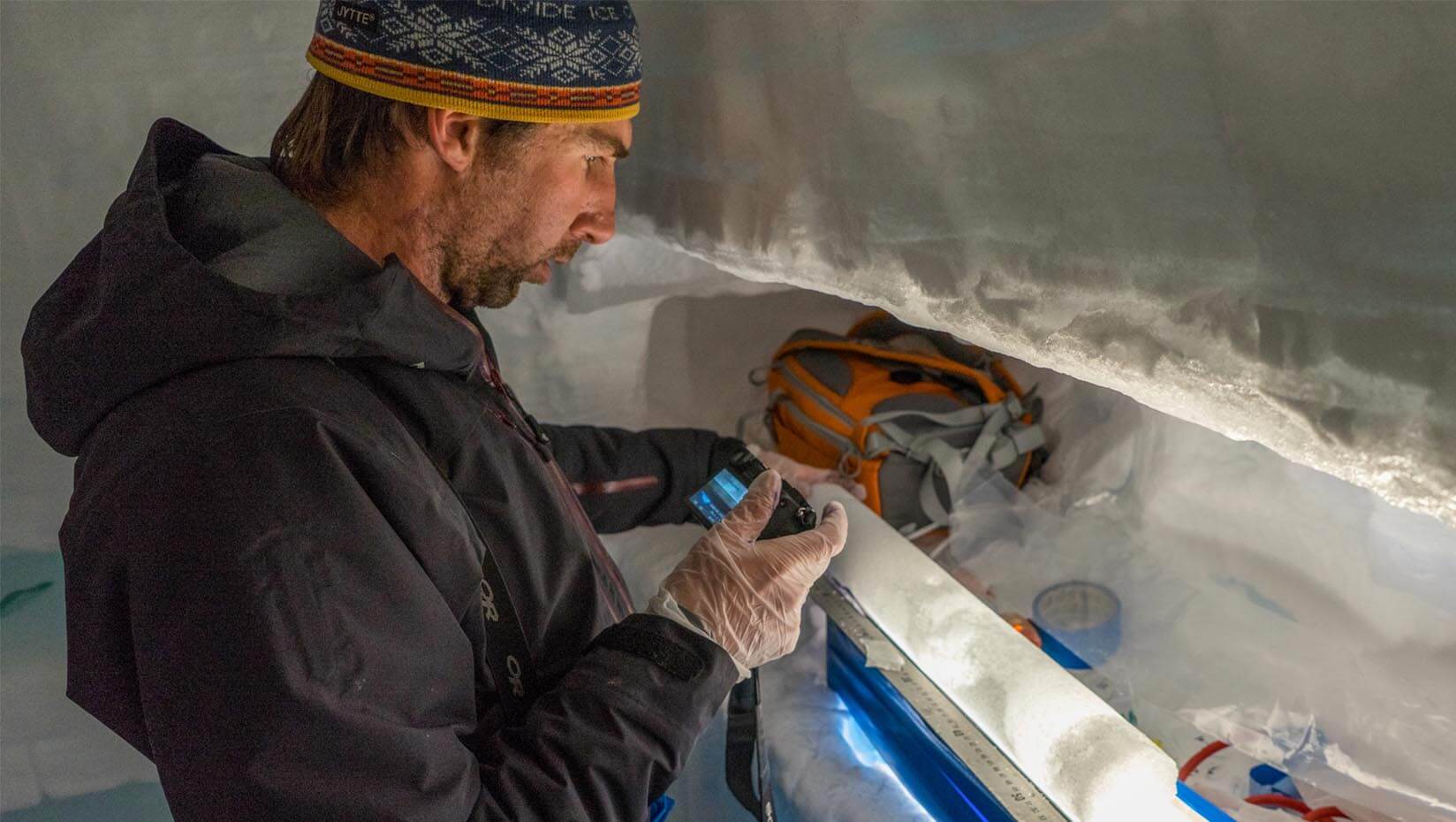
How pollution affects Arctic atmosphere explored in new study co-authored by UMaine researchers
A study co-led by Dartmouth College and University of Maine researchers provides new insight into how global pollution has altered the Arctic atmosphere.
UMaine Climate Change Institute scientists Karl Kreutz, who also directs the School of Earth and Climate Sciences, and Dominic Winski co-authored a study published in the journal Nature Geoscience which detailed how the onset of industrialization across different parts of the world altered atmospheric changes in the Arctic.
The authors’ findings came from the analysis of two ice cores recovered from Denali National Park in Alaska and ice cores previously drilled in Greenland. Glacial ice contains a record of snowfall, volcanic ash, human pollutants and other inorganic and organic compounds from the atmosphere. As a result, the ice cores can offer windows into past atmospheric conditions throughout millenia.
When examining the cores, researchers measured concentrations of a byproduct of marine phytoplankton activity called methanesulfonic acid, or MSA. Phytoplankton emit the majority sulfur found in Earth’s atmosphere in the form of dimethyl sulfide (DMS), which rapidly converts to MSA and other compounds soon after its release.
The team found that MSA levels declined extensively in Greenland since 1869, not long after Europe and North America began industrializing. Their research also revealed a substantial decline in MSA levels starting in Alaska since 1962, about the time industrialization began in East Asia.
As a crucial contributor to marine food systems and the carbon cycle, phytoplankton activity is used to assess the health of Earth’s oceans. MSA reduction was previously viewed solely as a signal for an ocean ecosystem in distress, but the research team found that levels of biogenic sulfur didn’t change despite the decline in MSA. Upon further examination, they found that the source of MSA reduction was fossil fuels converting DMS into sulfate instead of MSA, proving that industrialization is reshaping atmospheric conditions in the Arctic.
“It’s easy to think of the Arctic as being remote and isolated, but it really is part of a connected system,” Kreutz said. “Our actions do affect the Arctic, and in turn the changes we are now seeing in the Arctic are having impacts here in Maine.”
Read the full story on Dartmouth’s website.
Contact: Marcus Wolf, 207.581.3721; marcus.wolf@maine.edu
